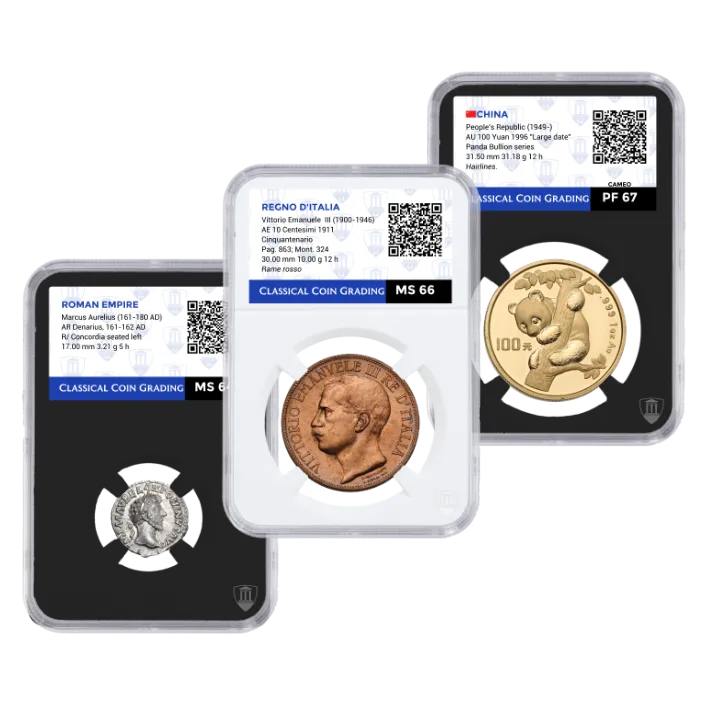Scala di valutazione monete
La scala di valutazione adottata da Classical Coin Grading si basa sulla scala di Sheldon, misura internazionale per gli stati di conservazione delle monete di tutto il mondo.
La scala di Sheldon viene applicata a monete antiche e moderne considerando le peculiarità delle emissioni di riferimento. Dopo avere classificato e dopo avere valutato l'autenticità delle monete, Classical Coin Grading assegna alla moneta un codice e un numero che corrispondono a uno specifico stato di conservazione.
In merito all’applicazione dei giudizi di riferimento si fa un unico distinguo associato a due tipologie monetali: monete antiche, ovvero coniate con tecniche artigianali, e monete moderne, ovvero coniate a macchina. Vista la datazione e le caratteristiche tecniche che le contraddistinguono, le monete antiche sono valutate secondo uno speciale processo che prevede, oltre alla normale assegnazione del punteggio, una valutazione bonus/malus basata su centratura, patina, caratteristiche del tondello, stile, impronta di conio e colpo d'occhio.
Tabella valutazione
Per facilitare la comprensione, presentiamo di seguito una tabella di confronto tra i nostri gradi (MS, AU, XF, VF, ecc.) e quelli tradizionalmente utilizzati in Italia, come Fior di Conio, Splendido, Bellissimo, ecc.
Il nostro obiettivo è offrire una valutazione chiara, ripetibile e verificabile, che possa fungere da riferimento affidabile tanto per il collezionista quanto per il mercato.
Per monete moderne
Le monete moderne sono coniate utilizzando macchine ad alta precisione in un processo industriale. Per le monete moderne, si distinguono le seguenti tipologie di emissioni.
Per monete antiche
Le monete antiche sono coniate con tecniche artigianali. In aggiunta ad una valutazione espressa secondo la scala di Sheldon, abbiamo introdotti 7 parametri per meglio specificare il grado di conservazione di questa tipologia di monete. Questi parametri sono utlizzati internamente come discriminanti per valutare la moneta.
Esempio di valutazione:
 Differenze patina
Differenze patina  Differenze superfici
Differenze superfici 


